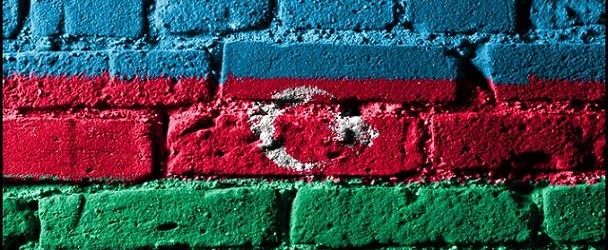According to Merriam Webster, slander is, “to make a false spoken statement that causes people to have a bad opinion of someone”. According to the same source, libel is, “the act of publishing a false statement that causes people to have a bad opinion of someone”. Does this include the telling of half the story or leaving out cogent facts that, if included, would show a situation in a completely different light? This begs the question of whether a country can be slandered or libeled? If so, the Republic of Azerbaijan seems to be slandered and libeled nearly on a daily basis.
A review of articles published in well-respected, and some not so well-respected, American news organizations will illustrate this picture glowingly. We need to look no further than The Washington Post. An analysis of the unquestionably one-sided and patently incomplete reporting of the Washington Post will make anyone’s toes curl up. The volume of reporting by The Washington Post on Azerbaijan, an important yet small nation in the scheme of things, also shows a pretty weird obsession.
Even opinion pages in media organizations, traditionally a portion of a publication reserved for the experts amongst us are now seemingly open to the “expert” opinions of self-anointed human rights “activists” and self-described “journalists”, and even bona fide ex-convicts. Is an individual paid by the government of one of Azerbaijan’s neighbors to conjure up stories of controversy about Azerbaijan automatically a human rights activist or a journalist simply because they proclaim it?
In terms of The Washington Post and other American media calling for support for “independent media” in Azerbaijan, does this proposed support actually mean independent and critical voices, including opposition media, who do the important and often challenging work of exposing problems and informing the public? Or does this call only refer to those funded by foreign governments–often based abroad and facilitated by mysterious and opaque funding sources?
A case, for example, is the puzzling idea that the Radio Free Europe and Radio Liberty, fully funded by the U.S. tax-payers, are somehow ‘independent’ media sources. Perhaps, Iran’s State Radio and Russia Today are also independent and should be supported according to The Washington Post. If so, so much for independence!
The reality is that from the outset of its independence in 1991, prior to the dissolution of the USSR, the Republic of Azerbaijan and its people decided that they no longer would tolerate being a part of the Big Brother-like society, as they had been forced to do during the Soviet years. Therefore, it is not surprising that when Azerbaijan is attacked for the restriction of freedom and violation of human rights, its citizens feel slighted and feel slandered and libeled.
One must remember that Azerbaijan is an emerging democracy. In such countries, there is a struggle for balance: how does the country shed its reputation of its former self, in this case, the Soviet Union, as an oppressive state and instead show its mettle as a new player in the democratic societies of the east and west. All post-Soviet and post-communist countries have experienced accusations (some of which were founded and some unfounded) of human rights violations. However, it is important to note that these concerns can be directly related to the number of former-Soviets in the political elite.
As an emerging democracy, the Republic of Azerbaijan has focused on home-grown political, public and business managers to ensure democratic reforms. Such goals need time. Democracy is not exportable, similar to Che Guevara’s idea of the export of revolution; both are grievous mistakes.
Coupled with Azerbaijan’s necessary growing pains is the influence on the media of countries that remain under Soviet-style influence. Armenia is a prime example in terms of the media and government. The Armenian lobby, strongly influenced by Russia, slings the word democracy as a weapon towards Azerbaijan, yet does not recognize that Azerbaijan is one of the fastest growing democracies in the world, a fact also lost upon some in the American media. Armenia’s and Russia’s goals are transparent: to push emerging democracies towards Russia and not the Western world.
In a new millennium where multiculturalism is among the highest values for emerging democracies, support for mono-ethnic Armenia is simply strengthening the dangers associated with a lack of diversity. Thus, the U.S. and its Western partners must ally with Azerbaijan and reinforce its multicultural beliefs, growth as its own style democracy and thus, decrease the risk of Islamic fundamentalism reaching its borders.
Of course, the media plays a role here. Why is it that when Azerbaijan is attacked by one publication or another, by this “activist” or that, there are never any facts associated? Every term used is nebulous, like “crackdown”. Does the arrest of an Iranian backed muckraker bent on overthrowing my government count as a crackdown? Who is a journalist, a barely literate flunky that Radio Free Europe carts out to attack Azerbaijan’s participation in and the hosting of the first European Games count?
You tell me. But when you do, please leave your subjectivity behind and use facts. Who, what, when, where, why and how? Empirical evidence that Azerbaijan has done something improper or wrong is a must – not simply using rhetoric to portray my nation. It serves no positive purpose to print or broadcast rants in the place of objective fact – that is slander and libel.
Asim MOLLAZADE
























































